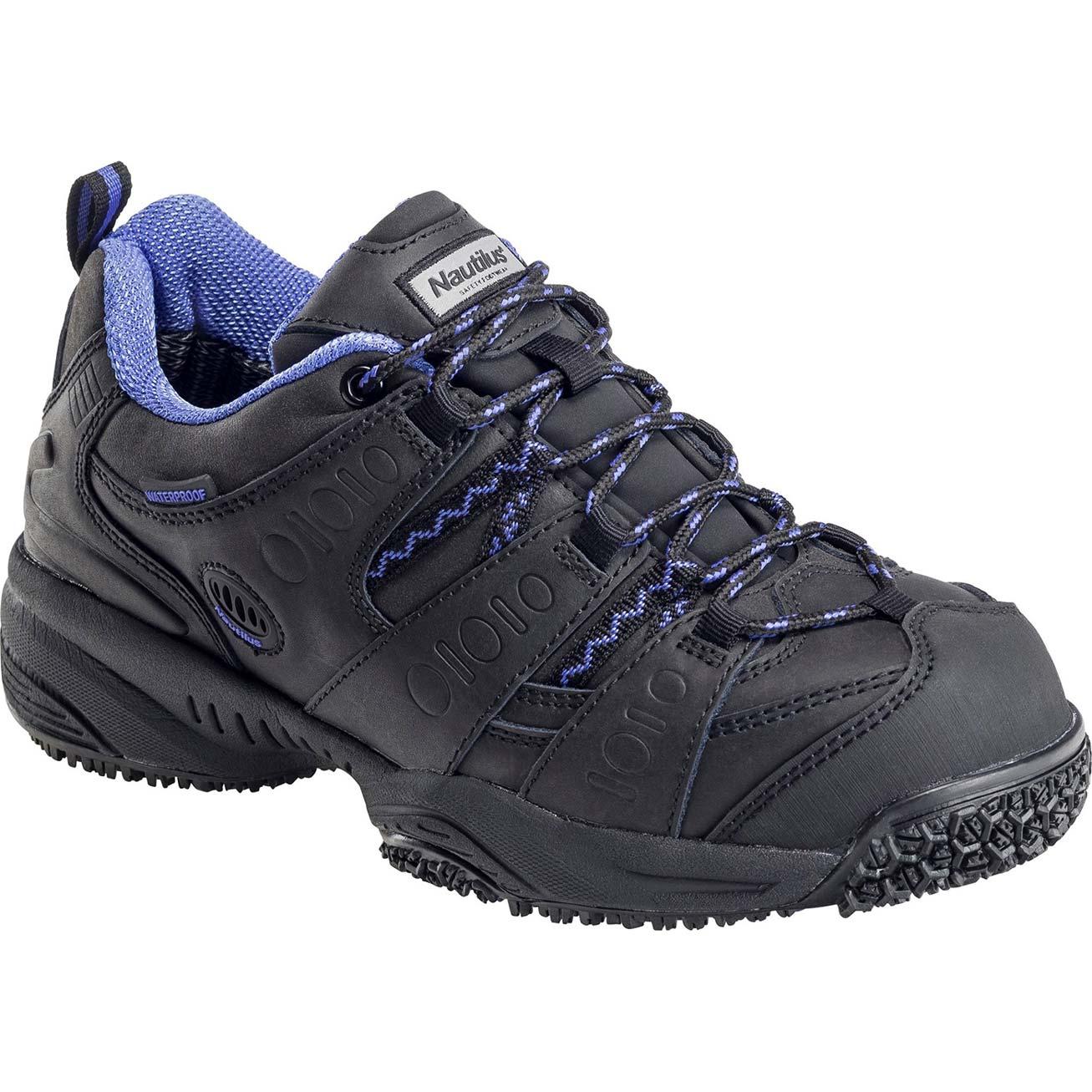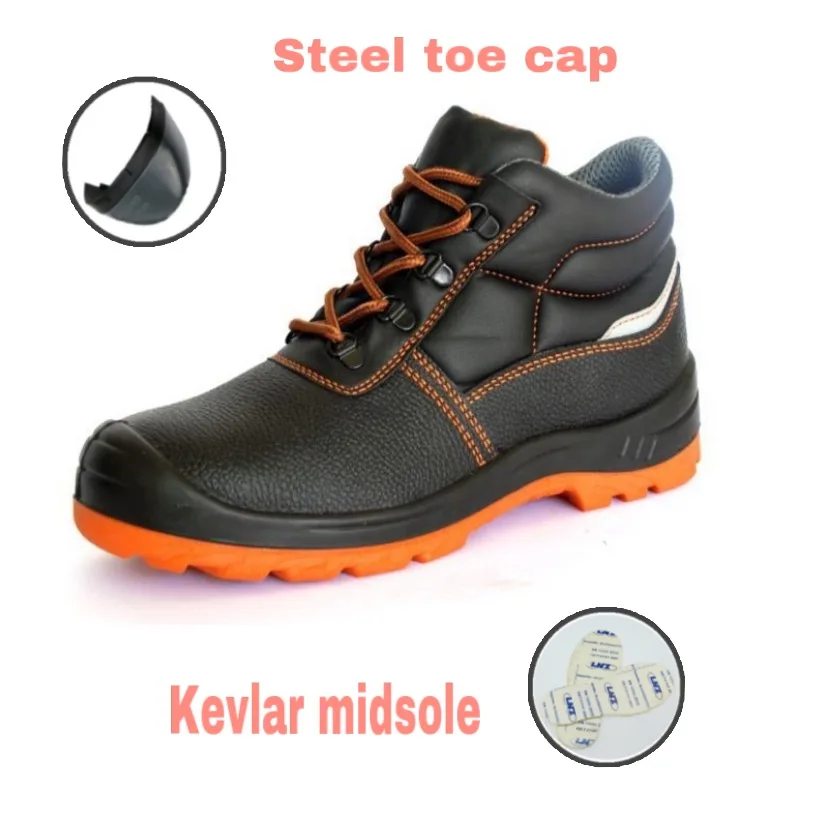Why Slip-Resistant Shoes Are a Must-Have for Industrial Workers
In industrial settings, the risk of slips, trips, and falls is ever-present, and the consequences of not wearing proper footwear can be severe. According to the Bureau of Labor Statistics, over 25,000 workers suffer from slip, trip, and fall injuries every year, resulting in millions of dollars in workers’ compensation claims. Slip-resistant oil-resistant work shoes are a crucial component of personal protective equipment (PPE) in industries such as construction, manufacturing, and food processing, where workers are exposed to hazardous environments. By wearing slip-resistant oil-resistant work shoes, workers can significantly reduce the risk of accidents and ensure a safe working environment. In fact, a study by the National Institute for Occupational Safety and Health (NIOSH) found that wearing slip-resistant shoes can reduce the incidence of slips, trips, and falls by up to 50%. With the risks of workplace accidents so high, it is essential for industrial workers to wear slip-resistant shoes that meet the highest standards of safety and performance.
What Makes a Shoe Oil-Resistant and Slip-Resistant?
A slip-resistant oil-resistant work shoe is designed to provide optimal traction and stability in hazardous environments. The key features that make a shoe oil-resistant and slip-resistant include the materials used, tread patterns, and other design elements. For instance, shoes with rubber outsoles and specialized tread patterns, such as lugs or cleats, can provide excellent grip on oily or slippery surfaces. Additionally, shoes with breathable membranes, such as Gore-Tex or eVent, can prevent oil and other liquids from penetrating the shoe, reducing the risk of slips and falls. Other design elements, such as ankle support and cushioning, can also contribute to a shoe’s overall slip-resistance and oil-resistance. Furthermore, some slip-resistant oil-resistant work shoes may feature advanced technologies, such as slip-resistant coatings or proprietary tread compounds, to enhance their performance. When selecting a slip-resistant oil-resistant work shoe, it is essential to consider the specific hazards and challenges of the work environment to ensure the shoe provides the necessary protection and performance.
How to Choose the Best Slip-Resistant Oil-Resistant Work Shoes for Your Job
Selecting the right slip-resistant oil-resistant work shoes for your job can be a daunting task, especially with the numerous options available in the market. However, by considering a few key factors, you can make an informed decision that ensures your safety and comfort on the job. First, consider the specific hazards and challenges of your work environment. For instance, if you work in a wet or oily environment, you may require shoes with advanced slip-resistance and oil-resistance features. Additionally, think about the comfort and durability of the shoes, as well as any certification standards that may be required by your employer or industry. Look for shoes that meet or exceed industry standards, such as ASTM or EN, and consider features like breathable membranes, ankle support, and cushioning. It’s also essential to try on several options to ensure a comfortable fit, as ill-fitting shoes can compromise your safety and performance. By taking the time to research and select the right slip-resistant oil-resistant work shoes for your job, you can significantly reduce the risk of slips, trips, and falls, and ensure a safe and productive work environment.
Top Picks: Dr. Martens Ironbridge and Thorogood American Made Work Boots
When it comes to selecting the best slip-resistant oil-resistant work shoes, there are numerous options available in the market. However, two popular choices that stand out from the rest are the Dr. Martens Ironbridge and Thorogood American Made Work Boots. The Dr. Martens Ironbridge is a top-rated slip-resistant oil-resistant work shoe that features a rugged outsole with deep lugs for excellent traction on oily and slippery surfaces. Additionally, it has a breathable membrane to keep feet dry and comfortable, and a comfortable, cushioned insole for all-day wear. With a 4.5-star rating and over 1,000 customer reviews, the Dr. Martens Ironbridge is a clear favorite among industrial workers. On the other hand, the Thorogood American Made Work Boots offer a more rugged and durable option for workers who require maximum protection and support. With a slip-resistant oil-resistant outsole and a comfortable, breathable upper, these boots are perfect for workers in construction, manufacturing, and other heavy industries. With a 4.7-star rating and over 500 customer reviews, the Thorogood American Made Work Boots are a top choice for workers who demand the best. Both of these slip-resistant oil-resistant work shoes are excellent options for workers who require reliable protection and performance on the job.
The Importance of Regular Maintenance and Inspection
Slip-resistant oil-resistant work shoes are a crucial investment for industrial workers, but their effectiveness can be compromised if they are not properly maintained and inspected. Regular maintenance and inspection are essential to ensure that these shoes continue to provide optimal protection and performance. Failure to do so can lead to a decrease in traction, stability, and overall safety, increasing the risk of slips, trips, and falls. It is recommended to inspect slip-resistant oil-resistant work shoes daily, looking for signs of wear and tear, such as worn-out soles, damaged uppers, and loose stitching. Additionally, workers should clean their shoes regularly to prevent the buildup of dirt, oil, and other substances that can compromise their slip-resistance. Employers can also play a crucial role by establishing a regular maintenance and inspection program, providing workers with the necessary resources and training to properly care for their slip-resistant oil-resistant work shoes. By doing so, workers can ensure that their shoes remain in good condition, providing them with the protection and confidence they need to perform their jobs safely and effectively.
Slip-Resistant Oil-Resistant Work Shoes for Specific Industries
Different industries present unique challenges and hazards that require specialized slip-resistant oil-resistant work shoes. For instance, construction workers often face rough and uneven terrain, requiring shoes with aggressive tread patterns and rugged outsoles to provide maximum traction. In manufacturing, workers may be exposed to oily surfaces, necessitating shoes with oil-resistant materials and slip-resistant soles. In food processing, workers may encounter slippery floors and surfaces, requiring shoes with specialized tread patterns and materials that can withstand the rigors of daily cleaning and sanitation. When selecting slip-resistant oil-resistant work shoes for specific industries, it’s essential to consider the unique hazards and challenges of each industry. For example, construction workers may require shoes with a higher ankle collar for added support and protection, while manufacturing workers may need shoes with breathable membranes to keep feet cool and dry. By choosing the right slip-resistant oil-resistant work shoes for the job, workers can reduce the risk of slips, trips, and falls, and employers can ensure a safer and more productive work environment.
What to Look for in a Slip-Resistant Oil-Resistant Work Shoe Certification
When selecting slip-resistant oil-resistant work shoes, it’s essential to look for certifications that ensure the shoes meet specific standards for safety and performance. Two of the most recognized certifications for slip-resistant oil-resistant work shoes are ASTM (American Society for Testing and Materials) and EN (European Norm). ASTM certification ensures that the shoes meet specific standards for slip resistance, abrasion resistance, and other performance criteria. EN certification, on the other hand, is specific to the European Union and ensures that the shoes meet EU standards for safety and performance. When choosing slip-resistant oil-resistant work shoes, look for certifications that are relevant to your industry or job role. For example, ASTM certification may be more relevant for workers in the United States, while EN certification may be more relevant for workers in the European Union. Additionally, look for certifications that are specific to the type of hazard you may encounter, such as oil-resistant or slip-resistant certifications. By choosing slip-resistant oil-resistant work shoes with the right certifications, workers can ensure they are protected from the hazards of their job, and employers can ensure they are providing a safe and compliant work environment.
Investing in Your Safety: The Cost-Benefit Analysis of Slip-Resistant Oil-Resistant Work Shoes
When it comes to investing in slip-resistant oil-resistant work shoes, many employers and workers may be hesitant due to the upfront cost. However, the benefits of investing in high-quality slip-resistant oil-resistant work shoes far outweigh the costs. By reducing the risk of slips, trips, and falls, employers can save on workers’ compensation claims, lost productivity, and medical expenses. In fact, according to the Occupational Safety and Health Administration (OSHA), slips, trips, and falls are the leading cause of workplace injuries, resulting in an estimated $13 billion in annual costs. By investing in slip-resistant oil-resistant work shoes, employers can reduce these costs and create a safer and more productive work environment. Additionally, slip-resistant oil-resistant work shoes can also improve worker morale and job satisfaction, leading to increased productivity and reduced turnover rates. When selecting slip-resistant oil-resistant work shoes, consider the cost-benefit analysis and choose shoes that meet the specific needs of your job or industry. With the right slip-resistant oil-resistant work shoes, workers can stay safe and productive, and employers can reap the benefits of a safer and more efficient work environment.








